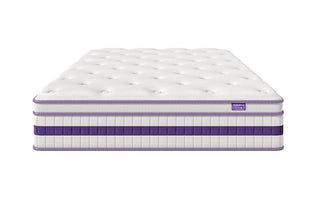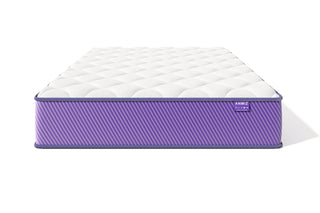Imagine waking up every morning feeling energized, clear-minded, and genuinely rested. For many people, this feels unreachable. Yet often, the reason is not the number of hours slept but the quality of habits surrounding sleep. This set of habits is known as Sleep Hygiene, which refers to daily behaviors and environmental conditions that influence how easily you fall asleep, how deeply you sleep, and how refreshed you feel when waking up. By improving sleep hygiene, you support your body’s natural sleep cycles and create a routine that consistently encourages restful sleep.
- 1. Sleep Hygiene and How It Affects Health
- 2. Sleep Hygiene Core Principles
- 3. Environmental Adjustments to Improve Sleep Hygiene
- 4. Technology and Sleep Hygiene
- 5. Behavior and Lifestyle Factors That Support Sleep Hygiene
- 6. Sleep Hygiene for Different Age Groups
- 7. Sleep Hygiene for Shift Workers
- 8. Frequently Asked Questions
- 9. Conclusion
Sleep Hygiene and How It Affects Health
Sleep hygiene affects physical, emotional, and cognitive well-being. When sleep quality is poor, energy levels decline and stress tolerance weakens. Over time, disrupted sleep may affect immune strength, weight regulation, and cardiovascular health. Good sleep hygiene helps strengthen your body’s internal clock, known as the circadian rhythm, which regulates sleep patterns. When the circadian rhythm stays aligned with daily routines, sleep becomes easier and more restorative.
Healthy sleep patterns also support hormone balance. Melatonin, cortisol, and growth hormones respond to light exposure, meal timing, and physical activity. By aligning habits with natural biological rhythms, sleep quality improves without requiring drastic lifestyle changes.
Why Daily Habits Matter
Sleep does not begin the moment you lie down. Instead, your brain transitions through rhythms influenced by your behaviors throughout the day. Light exposure, caffeine intake, stress levels, and screen use all shape the ability to wind down at night. Sleep hygiene practices work by guiding the body gently into a state of relaxation, making it easier to fall asleep naturally.
Environment’s Role in Sleep Quality
The sleeping environment influences how restful sleep feels. Temperature, sound, bedding, and lighting each shape comfort levels. A supportive mattress and pillow ensure proper alignment. Cooler temperatures support deeper stages of sleep. Dim lighting signals melatonin production. Quiet surroundings prevent unnecessary awakenings. Adjusting the sleep environment is a core part of maintaining strong Sleep Hygiene.
Sleep Hygiene Core Principles
Understanding core principles can help you build consistent routines. Small adjustments repeated daily have lasting effects on sleep quality. The goal is to reduce factors that stimulate the mind and increase behaviors that promote calmness and relaxation. These principles guide how your body prepares for sleep and wakes up ready for the day.
Consistent Sleep Schedule
Going to bed and waking up at the same time supports the circadian rhythm. Even on weekends, maintaining this schedule helps keep hormonal signals stable. When the body knows when to expect sleep, it prepares naturally by lowering temperature and releasing melatonin. Consistency is one of the most powerful aspects of sleep hygiene.
Establishing a Relaxing Pre-Sleep Routine
Calming routines signal the brain to shift from alertness to rest. These routines may include reading, stretching, soft music, or light meditation. Avoid activities that increase alertness, such as intense work, emotional conversations, or stimulating entertainment. Building a wind-down ritual encourages smoother transitions into sleep.
Limiting Stimulants and Heavy Meals
Caffeine and nicotine increase alertness. Late consumption can disrupt falling asleep. Heavy meals close to bedtime may cause discomfort or indigestion, interfering with restful sleep. Eating earlier supports natural digestion rhythms, enhancing deep sleep quality.
Environmental Adjustments to Improve Sleep Hygiene
Creating an optimal sleep environment is essential. Comfort and calmness are key elements. Adjusting room conditions and bedding can dramatically change sleep experience. Each modification supports deeper and more consistent rest.
Light Exposure
Light cues influence hormonal responses. Bright lights reduce melatonin production. Dimming lights in the evening gently signals the body to prepare for rest. Morning light exposure resets the circadian rhythm, making it easier to wake up and fall asleep at night.
Temperature Control
Cooler temperatures between 60 to 67 degrees Fahrenheit help maintain deep sleep. When the body cools naturally, it transitions into deeper sleep stages. Overheated environments can cause interrupted or shallow sleep.
Noise and Sound
Sound sensitivity varies by individual. For some, complete silence works best. Others may prefer soft, consistent noise such as white noise or gentle nature sounds. Reducing noise disruption helps maintain sleep continuity.
Technology and Sleep Hygiene
Technology influences mental stimulation and hormone production. Screens emit blue light, which disrupts melatonin levels. Engaging content stimulates focus and emotion, making it harder to relax before bed. Managing technology use is an important part of improving Sleep Hygiene.
Reducing Screen Exposure Before Bed
Limiting screens at least an hour before sleep supports melatonin release. If screen use is necessary, reduce brightness and use warm-tone lighting settings. Avoid engaging with intense or emotionally charged content before bed.
Digital Boundaries for Relaxation
Establishing a digital cutoff time encourages mental unwinding. Notifications, messages, and media consumption can create lingering stimulation. Setting boundaries around evening technology helps the brain shift gradually into a resting mode.
Behavior and Lifestyle Factors That Support Sleep Hygiene
Daily habits shape sleep quality. Physical and mental activities during the day influence how ready the body feels to rest at night. Choosing supportive habits strengthens healthy sleep patterns.
Regular Physical Activity
Exercise enhances sleep depth by improving physical relaxation and reducing stress. However, intense exercise close to bedtime may increase alertness temporarily. Exercising earlier in the day supports smoother nighttime transitions.
Managing Stress and Emotional Overload
Stress affects the ability to fall asleep and stay asleep. Stress-management techniques such as mindful breathing, journaling, or gentle stretching help reduce mental clutter. These practices create emotional quietness that eases sleep onset.
Exposure to Natural Light
Natural light exposure during the day signals wakefulness. Morning sunlight helps regulate melatonin timing, promoting better nighttime rest. Spending time outside can reinforce the internal sleep-wake cycle.
Sleep Hygiene for Different Age Groups
Sleep needs vary by age. Children, teenagers, adults, and older adults require different amounts of sleep and may face distinct sleep challenges. Tailoring sleep hygiene practices ensures each group receives adequate rest.
Children
Bedtime routines help children understand sleep cues. Calming activities such as storytelling support steady rhythms. Consistent bedtime builds confidence and emotional security.
Teenagers
Teens often experience shifts in circadian rhythm. Encouraging reduced evening screen use and consistent sleep schedules supports their developing sleep patterns. A quiet and dark room helps teens fall asleep more easily.
Adults
Work schedules, stress, and lifestyle habits heavily influence adult sleep. Establishing firm wind-down routines and minimizing evening distractions improves sleep quality. Adults benefit from prioritizing restorative rest to support cognitive and physical performance.
Older Adults
Changes in hormone levels and sleep structure affect older adults. Adjusting sleep hygiene practices, such as increasing daytime light exposure and practicing regular gentle exercise, supports deeper rest.
Sleep Hygiene for Shift Workers
Shift workers often sleep at irregular times. Maintaining sleep hygiene becomes crucial in aligning sleep patterns. Blackout curtains, consistent wake times, and regulated meal timing help stabilize the circadian rhythm even when schedules vary.
Frequently Asked Questions
Q: How long does it take to see improvement with sleep hygiene changes?
A: Some people notice results within a few days, while others may take a few weeks. Consistency is essential.
Q: Can good sleep hygiene replace sleep medications?
A: In some cases, yes. Many people find sleep improves naturally with healthy habits. However, always consult a professional before changing medication use.
Q: Is napping harmful for sleep hygiene?
A: Short naps earlier in the day can boost energy. Long or late naps may interfere with nighttime sleep.
Q: What if I wake up in the middle of the night often?
A: Try maintaining a calm mind. Avoid screens and bright light. Gentle breathing or relaxation techniques can help you return to sleep.
Q: Does diet play a major role in sleep hygiene?
A: Yes. Balanced meals, limited caffeine, and mindful timing of food improve sleep depth and comfort.
Conclusion
Improving Sleep Hygiene is a powerful and sustainable way to enhance sleep quality. By aligning daily routines, environmental conditions, and relaxation practices with the body’s natural rhythms, sleep becomes more restorative and consistent. Whether adjusting screen habits, refining bedtime routines, or improving bedroom comfort, small changes compound over time. Prioritizing sleep hygiene supports mental clarity, physical health, emotional balance, and long-term wellness.












